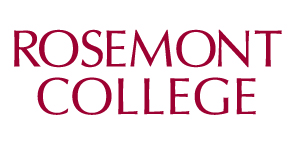Associate of Science in Criminal Justice Degree Requirements
- Transfer up to 45 credits and gain credit for life experience.
- Training in the police academy, POLEX, NWSPSC, FBI-NA, Joint Services Transcripts, and others may be considered credits for transfer.
- Courses are available online. Courses are also taught at the Philadelphia Police Academy.
Core Criminal Justice Courses (18 Credits)
An overview of the criminal justice system: an investigative look into the agencies of social control including law enforcement, corrections, and the courts. To include brief discussion of crime causation in order to identify methods of crime control. (3 credits)
This course examines American crime problems in a historical perspective, examines crime causation, social and public policy factors affecting crime, the impact of crime and crime trends, social characteristics of specific crimes, and the prevention of crime. (3 credits)
This course discusses the history, development, and policy of the juvenile justice system. Understanding theories along with biological, and psychological factors that contribute to juvenile delinquent behavior are covered through discussion of targeting, preventing, redirecting, and controlling delinquent behaviors. Topics also include punishment vs. rehabilitation, intervention strategies, youth gangs and substance abuse issues. (3 credits)
This course offers an interdisciplinary, scientific approach related to the study of criminal behaviors. Includes an introduction to the organization of the criminal justice system; theories of crime causation; crime typologies; research methods utilized to collect and analyze crime trends; and analysis of the crime trend statistics themselves. (3 credits)
This is an applied course relating to conducting criminal investigations. This course examines the history, theories, and problems of criminal investigations. What really needs to be done to solve the case? Topics to include identifying, collecting, and processing physical evidence; understanding the relative value of evidence as it is applied to a specific case; conducting interviews and interrogations. Successful criminal investigations rely on an analytical process to uncover and sort evidence and information to determine what occurred. (3 credits)
This course examines the roles of women in the criminal justice system. The topics of women as victims, offenders, and practitioners in the field of criminal justice will be examined. A theoretical and pragmatic approach will be applied to those crimes, which have a greater impact on females in society, such as rape, prostitution, and domestic abuse. The evolving role of women as professionals in the field of criminal justice will be explored. Also considered will be societal views and the role of the media concerning these issues. (3 credits)
Criminal Justice Electives (6 Credits)
Choose two courses from the following options.
This course is designed to introduce students to the field of corrections, providing an overview of the issues involved in the American corrections system from the beginning to present day. Students will learn about practices based on philosophies of retribution, deterrence, and rehabilitation. The course emphasizes the role of sociology and other interdisciplinary approaches to the field of corrections and society’s response. (3 credits)
This course provides an overview and analysis of the American system of law enforcement, examining the origins, development, roles, and operations of policing in a modern democratic society. Students will develop a detailed understanding of the issues involved in policing a democratic society and will examine critical issues and new advances in law enforcement. (3 credits)
This course presents probation as a judicial process and parole as a community function. Also discussed are the role of the probation/parole officer; pre-sentence investigation; selection, supervision, and release of probationers and parolees. A historical review of trends in probation and parole such as halfway houses, work release programs and parole clinics; reintegration of offenders in society; and future trends are explored. (3 credits)
The history and organization of organized crime in America: from neighborhood gangs to large scale, sophisticated organizations like the Cosa Nostra. Recruitment, activities (drugs, prostitution, protection, extortion, gun running, etc.), codes, inter/intra-organization rivalry, law enforcement evasion, and criminal justice system responses. A closer look at the proliferation of violence and escalating weaponry; the financial, moral, and social impact on society; interaction with legitimate organizations and infiltration; predicting the future demographic immigration patterns. (3 credits)
This course provides the student with an overview of homeland security. Major themes and issues considered essential for understanding homeland security including border security, threat analysis, critical infrastructure, planning, preparedness, mitigation, response, and recovery are analyzed and critiqued by students. (3 credits)
How terrorists operate and how they differ from other criminals. Conducting terrorism investigations including the collection of evidence. Differences between domestic and international terrorists. The Jihad, other religious fundamentalist movements, and indigenous terrorists’ groups. The threat of bioterrorism. Is prevention possible? The public’s role in prevention. Dangers to the public and specifically, first responders. Impact of the media. This course will move from motive, to terrorist acts, to evidentiary issues, to investigation, prosecution and resolution. (3 credits)
Explores how drugs and crime are interrelated issues and how these issues affect society. The development and implementation of laws pertaining to prescription and non-prescription use and abuse. Discussions of drug courts and drug treatment approaches are discussed. What are the real effects that chemical dependency has on our society? (3 credits)
Types and definitions of sexual offenses; typologies, causations, assessment, and treatment of offenders: and care and treatment of sex crimes. Monitoring issues. Juvenile vs. adult sexual offenders. (3 credits)
General Education (42 Credits)
In addition to meeting the course requirements and electives listed above, all students must also fulfill 42 credits of General Education requirements. These include courses in writing, humanities, science, and multiculturalism. These courses reflect Rosemont’s approach to a liberal arts education. Click here to see General Education requirements.
